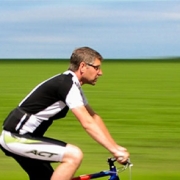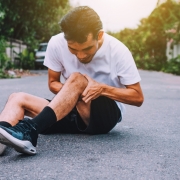Common Types of Cycling Injuries
Are you taking a break from cycling due to an injury? While riding bikes is a great way to exercise, it does come with the risk of getting hurt. Our physical therapists in Scottsdale and Phoenix, AZ, at Endurance Rehabilitation can help you recover and get back to riding!
Injuries from Falling
These are among the most common cycling injuries. You can end up with strained or torn muscles, bruises, and even fractures from falling. Whether you lose your balance or collide with another object, these injuries can keep you from enjoying riding around.
Lower Back Pain
How do you sit when you’re on your bike? If you’re constantly leaning forward, this puts strain on your lower back muscles. You might also have pain that extends from your back to your hips or legs.
Joint Pain
The way you sit on your bike can also affect other joints. You might have knee pain or soreness in your wrists from straining muscles and other soft tissue while cycling. This can lead to tears or other injuries that prevent you from riding your bike.
Neck Pain
Are your handlebars too low? If so, this can lead to neck aches and pains as your body strains itself. Adjusting the bars if possible and correcting your posture should help ease this pain, allowing you to ride around comfortably!
Schedule a Visit for Injury Rehab Today!
Have you been hurt while riding your bike? At Endurance Rehabilitation, our team provides physical therapy in Scottsdale and Phoenix, AZ, to help you recover from cycling injuries. Whether it’s back pain or an impact injury, we’re here to help you get back to your favorite activity!








